
First, let me start by saying this is in no way a politically motivated article. It is simply our review and fascination with analytics and search data. Like we have with Coronavirus (COVID-19) Search Trends, we’ve been keeping an eye on this year’s Presidential Election from an analytical standpoint.
In 2016, I was personally intrigued why all the analytics and search data I reviewed at that time showed such a strong enthusiasm for Donald Trump, but the traditional polls shown in media reports kept showing such a strong contrast. Leading up to election day the well established polls had Hillary Clinton in a solid lead. I posted this on our Facebook page on November 8, 2016 after the election:
Perhaps the 2016 United States Presidential Election results should have come as no surprise, based on the search data. After announcing his candidacy in June 2015, Trump led in Google search for most of the election cycle.
Can Google Search Data Predict Elections?
It certainly did in the 2016 presidential election and looking back to 2004, when Google Trends data was first available, it has correctly predicted the winner of each U.S. presidential election.
The input is fairly simple just enter:
[Candidate’s Last Name] + [Election Year]
We use Google Trends for many other types of queries, but it has also been a remarkably effective way to gauge the enthusiasm for any candidate’s campaign.
Let’s jump to past elections:
2004 United States Presidential Election
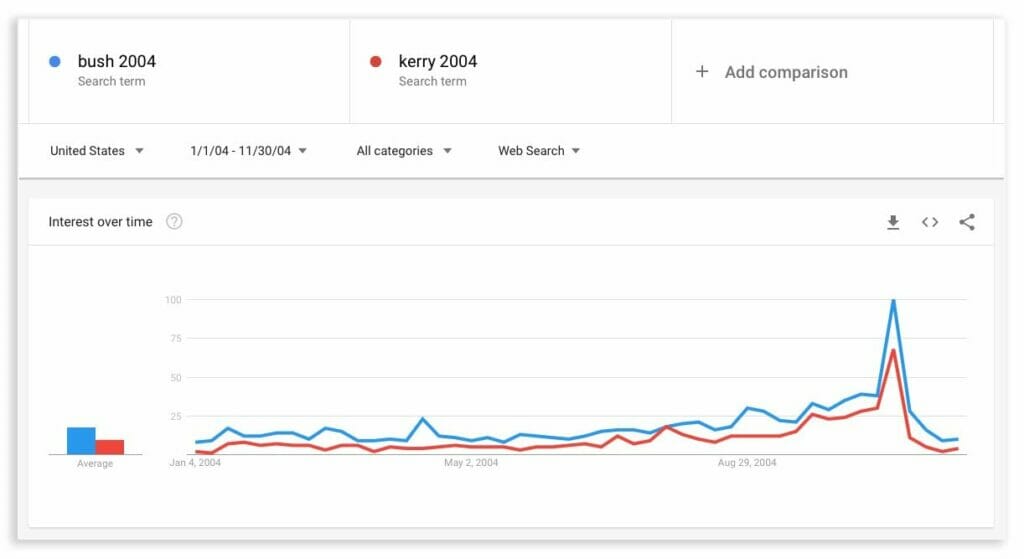
Google Trends can only go as far back as 2004 so this is the first presidential election set of data we can reference. For the entire election year, George W. Bush (incumbent) had more search demand than his challenger, John Kerry. The result, Bush won both the popular and electoral vote.
2008 United States Presidential Election
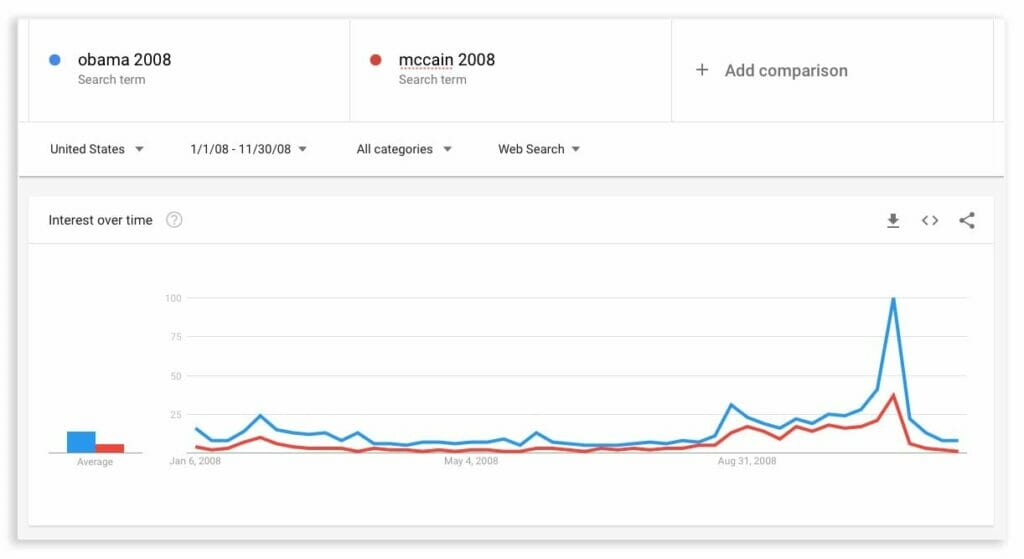
In search data Barack Obama led John McCain for the duration of 2008 election. Obama went on to win both the popular and electoral vote making him the 44th President of the United States.
2012 United States Presidential Election
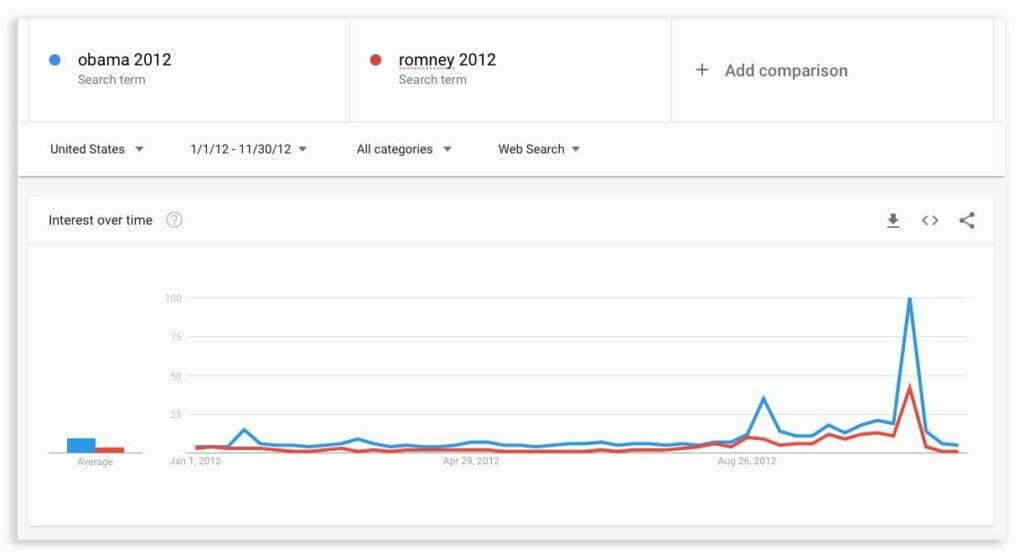
Barack Obama (incumbent) led in search data for the entire year and had more search demand than Mitt Romney. Again, Obama went on to win both the popular and electoral vote in 2012.
2016 United States Presidential Election
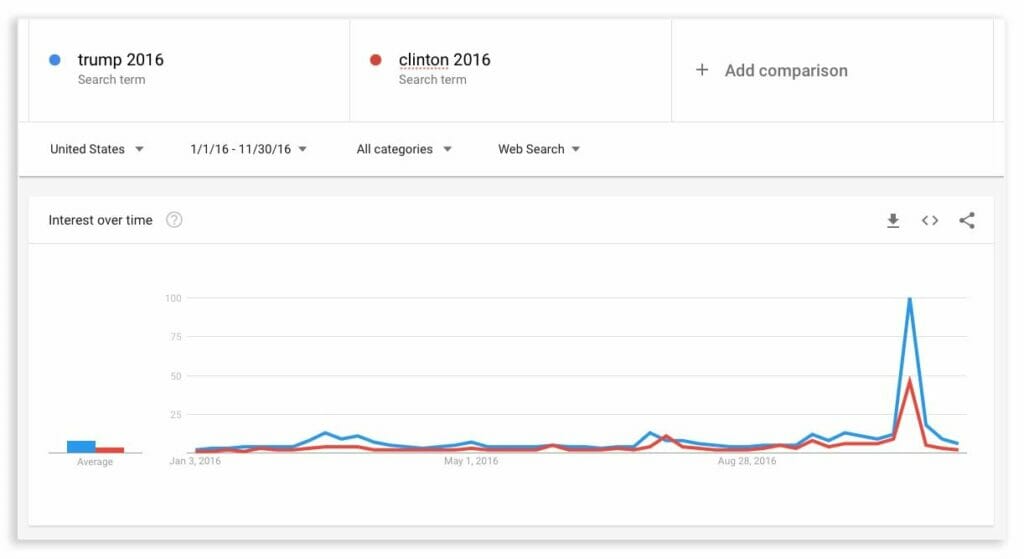
Contrary to the polls, Donald Trump had more search demand than Hillary Clinton through 2016 (with the exception to the Democratic National Convention in July 2016). Donald Trump lost the popular vote in 2016, but won the electoral vote thus becoming the 45th President of the United States.
2020 United States Presidential Election (ongoing)
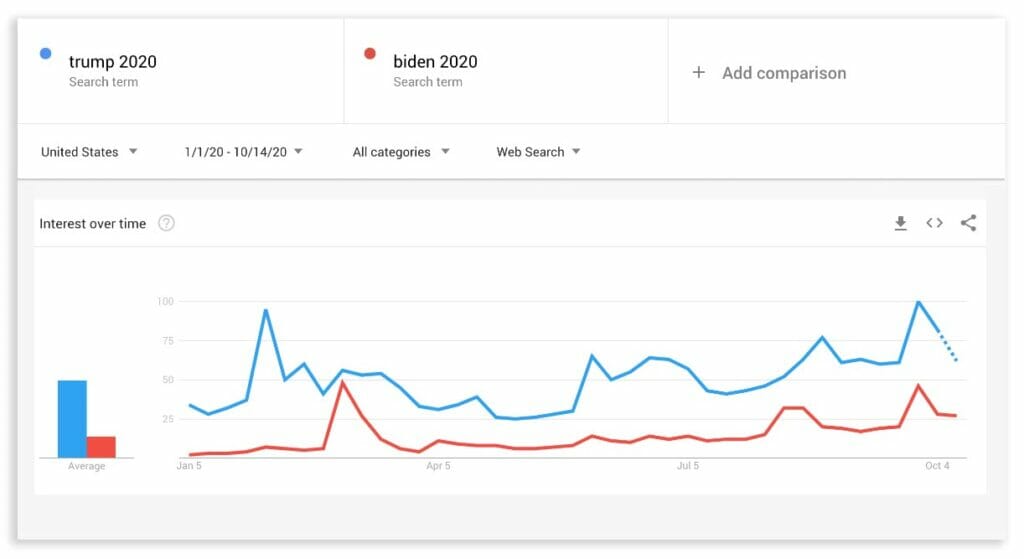
Here we are in 2020 and once again Donald Trump (incumbent), is trending significantly higher in searches than his challenger Joe Biden. (In fact, this is the largest disparity in search demand between any other U.S. presidential hopefuls to date). Does this imply another Donald Trump victory? In a few more weeks we’ll know.
Is This Presidential Election A Repeat of 2016?
The majority of political scientists, pollsters, and analysts, weren’t able to correctly predict the results of the 2016 Presidential Election. And once again the traditional 2020 U.S. Presidential Polls are a sharp contrast from what we’re seeing in Google search data.
Does this data mean that Joe Biden is an uninspiring candidate? Or does it suggest that Trump’s “silent majority” is even stronger than it was in 2016? We don’t know yet, but it’s certainly fun and fascinating to keep a pulse on (at least for analytics nerds like us)!





About The Author: Kevin Watts
Kevin Watts is the founder of Raincross, a premier web design, development and digital marketing agency headquartered in Riverside, CA.
Kevin got his start in online marketing and website design by working for some of the most prominent names in online retail. He's most recognized for helping to start e-commerce retailer Organize.com in 1998, and spent 12 years running the company's e-commerce and online marketing operations. He has been recognized and has received several online retail, marketing and merchandising awards throughout his career.
Kevin grew up in Riverside, CA and graduated from the University of Wyoming. In his spare time, Kevin is an avid fly-fisherman, college football fan, and enjoys spending time with his son Matthew, daughter Kate and wife Lindsey.
More posts by Kevin Watts